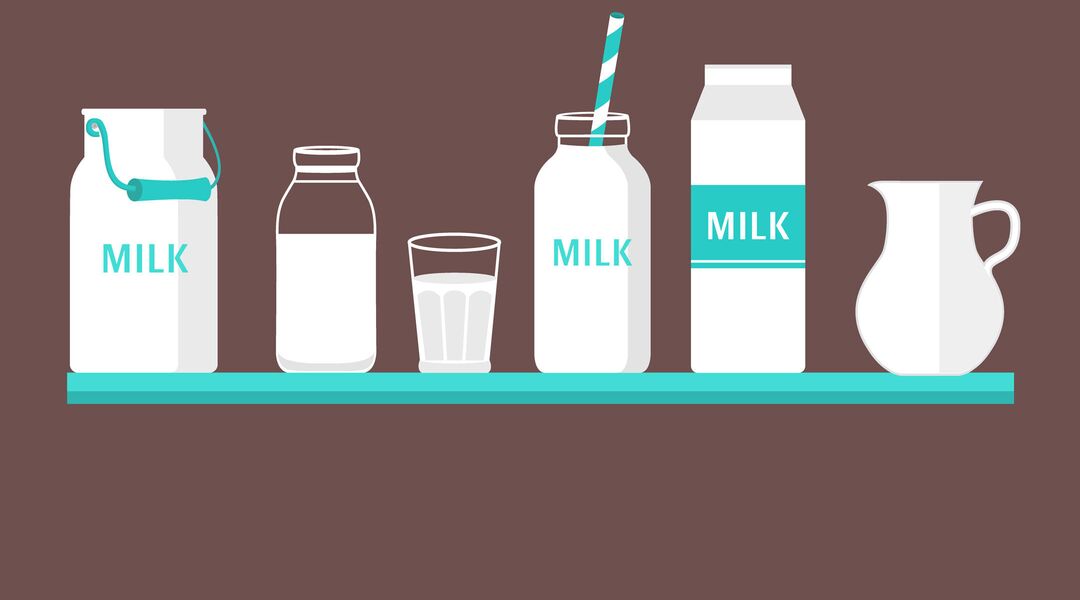Lactose Intolerance During Pregnancy
What is lactose intolerance during pregnancy?
People who are lactose intolerant lack lactase, the enzyme that normally digests a sugar called lactose. Since lactose is found in dairy products, eating them makes you feel sick. If you’re lactose intolerant, you’re probably wondering how to get the calcium you need during pregnancy without getting sick.
What are the signs of lactose intolerance during pregnancy?
The most common signs of lactose intolerance are abdominal pain, bloating, cramping and gas after ingesting dairy products. Sounds a lot like general pregnancy symptoms, right?
Are there any tests for lactose intolerance during pregnancy?
Yes. Sometimes a doctor diagnoses lactose intolerance based on symptoms. If you consistently experience abdominal pain, bloating and gas after eating or drinking dairy—but you feel fine after cutting dairy out of your diet—you’re probably lactose intolerant. A simple breath test or blood test, performed in a doctor’s office, can confirm the diagnosis.
How common is lactose intolerance?
Pretty common. It’s more common in adults (who don’t have the same biological need to drink milk that young kids do), and it’s more common among people of African, Asian, South American or Native American descent.
How did I get lactose intolerance?
It might be genetic. Other times, lactose intolerance is caused by an injury to the small intestine, which normally produces lactase.
How will lactose intolerance affect baby?
You don’t have to drink milk to have a healthy baby, but you do need to make sure to get enough calcium. Know that baby will be fine no matter what—even if you skimp on calcium—but that’s because your body will draw calcium from your bones and teeth to make sure your baby has what she needs to grow healthy and strong. And that can have devastating long-term effects on your own health, causing osteoporosis.
How can you get enough calcium during pregnancy?
If you can’t tolerate cow’s milk, try almond, soy or rice milk. Calcium is also in kale, broccoli and salmon. Some women with lactose intolerance can handle yogurt, so you might want to try it to see how it goes.
It can be hard to reach the recommended pregnancy intake of 1,200 mg of calcium per day without eating or drinking dairy, so many pregnant women who are lactose intolerant take calcium supplements. If you’re choosing between a calcium carbonate and a calcium citrate supplement, Michelle Collins, CNM, an assistant professor of nurse-midwifery at Vanderbilt University, recommends going with the citrate. “Calcium citrate is much more absorbable and doesn’t cause constipation, so it tends to work better for pregnant women.”
You can also try Lactaid, which is an over-the-counter form of lactase that allows you to digest lactose (and eat dairy!).
What can I do to prevent lactose intolerance?
You can’t prevent lactose intolerance, but you can manage the symptoms.
What do other pregnant moms do when they have lactose intolerance?
“I think I may have developed an intolerance to lactose over the last three months… I have been keeping track of my reaction to dairy and it is becoming increasingly unpleasant… I mainly have problems with just straight milk. Most cheese and yogurts don’t cause me nearly as much discomfort! I have been taking calcium supplements throughout the pregnancy…”
“Around the beginning of my second trimester I realized that milk was making me suffer. Anything containing real cream is even worse. [So I’m avoiding those.]”
Are there any other resources for lactose intolerance?
Please note: The Bump and the materials and information it contains are not intended to, and do not constitute, medical or other health advice or diagnosis and should not be used as such. You should always consult with a qualified physician or health professional about your specific circumstances.
Plus, more from The Bump:
Navigate forward to interact with the calendar and select a date. Press the question mark key to get the keyboard shortcuts for changing dates.




















































